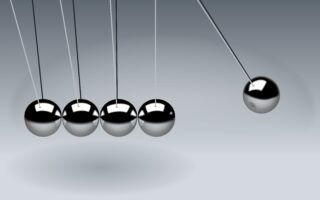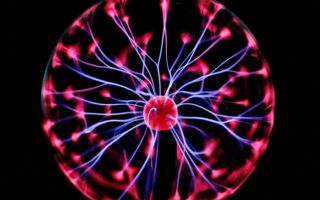Can modern physics prove esotericism?
Category: Physics
Reviewer: Dr. Stephan Krall
To review a book in Tattva Viveka that rides an attack against this newspaper and also me personally, can that go well? I will give it a try.
This is the second expanded and updated edition. The author’s concern is the fact that, in his opinion, especially relativity and quantum physics are being trifled with in esoteric circles and that these two physics have to be used for everything.
The book is well structured and written fluidly, even wittily. However, with a sharp pen and sharp tongue. This is, however, in my eyes, statuary, although not as widespread and popular in Germany as in other countries.
Holm Hümmler divides the book into two parts. The first half describes very extensively and competently – he is a nuclear physicist – modern physics and its history. At the end of each section, there is a “takeaway” box that summarizes the central message once again. And interspersed are other boxes titled “Quark Pieces”, each of which already briefly refers to the esoteric interpretation of this physics.
After these chapters 1-5 then comes the “frontal attack”. In chapter 6 well-known persons, whose theories move in the area of the border sciences, but who are from their background and career serious and also in the eyes of Hümmler good scientists or were at the beginning of their careers, are worked off in detail : Burkhard Heim, Hans-Peter Dürr, Markolf Niemz, Walter von Lucadou, Hartmann Römer and also Thomas and Brigitte Görnitz.
Burkhard Heim is presented as caught in the standard model of physics, extremely difficult to understand and of his theories as incorrect. Hans-Peter Dürr is accused of having gone too far from his core competence in physics into the field of politics and also esotericism, where he was heard mainly because of his name and not necessarily because of his competence. Walter von Lucadou, Hartmann Römer and co-workers are criticized because of a “Generalized Quantum Physics” developed by them, which according to Hümmler has nothing to do with quanta. Thomas and Brigitte Görnitz are treated a little more carefully and their theory is called legitimate, although not advanced and old-fashioned. They are accused of having published in the magazine Tattva Viveka, which is close to the Hare Krishna movement, and thus of having opened the door for the esoteric movement to appropriate this theory.
In chapter 7 all those are treated whom Hümmler considers with their theories, therapies and devices absurd and thus complete quantum baloney. These are mostly also well-known names like Konstantin Meyl, Ulrich Warnke, Marcus Schmieke, Deepak Chopra, Rupert Sheldrake and quite a number of others. It is surprising that also Fritz-Albert Popp falls under this category, with whom one goes hard into court, because he went into areas, in which his theory after Hümmler did not supply any more proofs, e.g. the cancer research. Popp’s assumption of the importance of photons in regulatory processes is rejected outright by Hümmler.
In the last chapter 8 Hümmler tries to make clear once more how quantum quark is created and how one can recognize it and also mix some oneself.
What is my conclusion? Whoever produces theories, therapies and devices that refer to Albert Einstein, Max Planck and Werner Heisenberg must also put up with criticism from a scientist who is himself a physicist and seems to know a lot about it. Much of Hümmler’s criticism is understandable, because the esoteric scene actually justifies a lot of nonsense with quantum physics and relativity theory, from quantum healing to quantum diets. But since Hümmler himself writes that science is always evolving, and some things that seem true today may be false in the future, the reverse assumption should also apply. There may be things that are considered false today, but may well contribute the grain of truth to a further development of science tomorrow.
I believe for example that Hümmler completely underestimates the role which photons play in regulation processes up to consciousness. And in connection with this, Hümmler does not see the importance that quantum processes play in living beings, although new findings on this are accumulating. On the one hand, he himself goes into detail about the book “Der Quantenbeat des Lebens” (The Quantum Beat of Life) by the two scientists Jim Al-Khalili and Johnjoe McFadden, which was published in German in 2015, and writes: “It may be possible to regard it as a fundamental feature of processes in living cells that they are able to shield certain quantum effects within molecules from the outside world.” Elsewhere he writes that it is rather unlikely that quantum effects are even possible in biological systems, and that no molecule occurs in isolation from the environment, so decoherence always occurs. This contradicts itself.
To simply condemn the book as baloney and continue to move only in the circles where you get the confirmation you want would be wrong, on both sides. A problem could be that some on the side of the so-called esotericism is not (only) about the search for truth, but commercial interests are involved to sell certain therapies or devices. It could well be that one lets nines be straight for it already times.
I was enriched by the book. And even if I go with it after Hümmler into the proximity of the Esoterik, because also I am quoted because of an article in the Tattva Viveka, I will continue to write in this magazine, if one asks me for it. That doesn’t mean I have to be an esotericist. It is precisely this openness that is important. Earlier researchers were not only physicists, chemists and biologists, but also philosophers, theologians and natural scientists in one person, like the great Isaac Newton, for whom even alchemy was as important as physics.
This article has also been published on the German Website: https://www.tattva.de/rezension-holm-huemmler-relativer-quantenquark/




